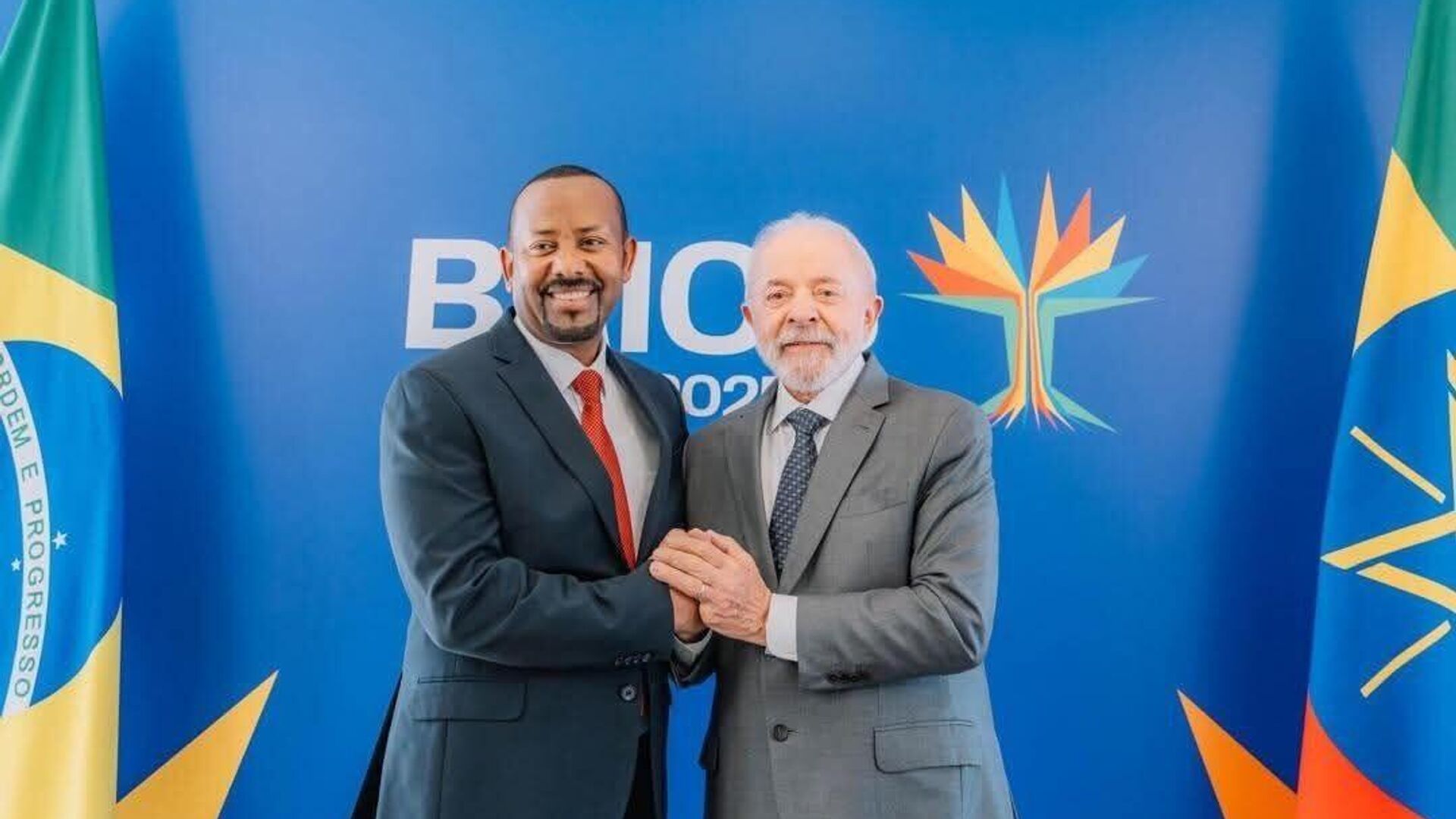
Egyptian Prime Minister Mostafa Madbouly has confirmed that a private bilateral meeting took place between him and Ethiopian Prime Minister Abiy Ahmed during the recent BRICS summit in Brazil.
The encounter, which had not been officially disclosed beforehand, came under public scrutiny after a photograph showing the two leaders holding hands began circulating widely online.
Speaking during a press conference on Thursday following an Ethiopian government session, Madbouly addressed the speculation, revealing, “We met in Brazil on the sidelines of the BRICS summit.
Prime Minister Abiy reiterated his country’s strong commitment to not harming Egypt and called for the resumption of cooperation between the two nations.”
The image, which ignited debate across Egyptian social media platforms, was taken during a group photo of attending leaders. “Protocol dictates interlocking hands in such photos,” Madbouly clarified.
“Egypt’s position happened to be next to Ethiopia and Iran. We had no control over the arrangement; it was determined by protocol considerations.”
Tensions between Egypt and Ethiopia have remained high in recent years due to the Grand Ethiopian Renaissance Dam (GERD) project.
Earlier this week, Abiy Ahmed announced the dam’s completion and extended an invitation to Egypt and Sudan to attend its inauguration in September — a move that many Egyptians perceived as provocative.
Madbouly reiterated Egypt’s firm stance on the matter: “We are not against development in any country, but good intentions and statements must be translated into a written document that regulates the future relationship between the two countries — and guarantees the rights of future generations.”
He emphasized that while the Ethiopian Prime Minister has made repeated assurances that the GERD will not harm Egypt or Sudan, verbal promises are not enough.
“Our position has not changed at all; Egypt will not allow any harm regarding the Nile River waters,” Madbouly asserted.
He concluded by noting that the Egyptian government’s proactive measures have so far protected the country’s water interests during the dam’s filling process.
However, he underscored the urgent need for a binding agreement: “There must be a written agreement to regulate this matter and guarantee the rights of future generations.”



